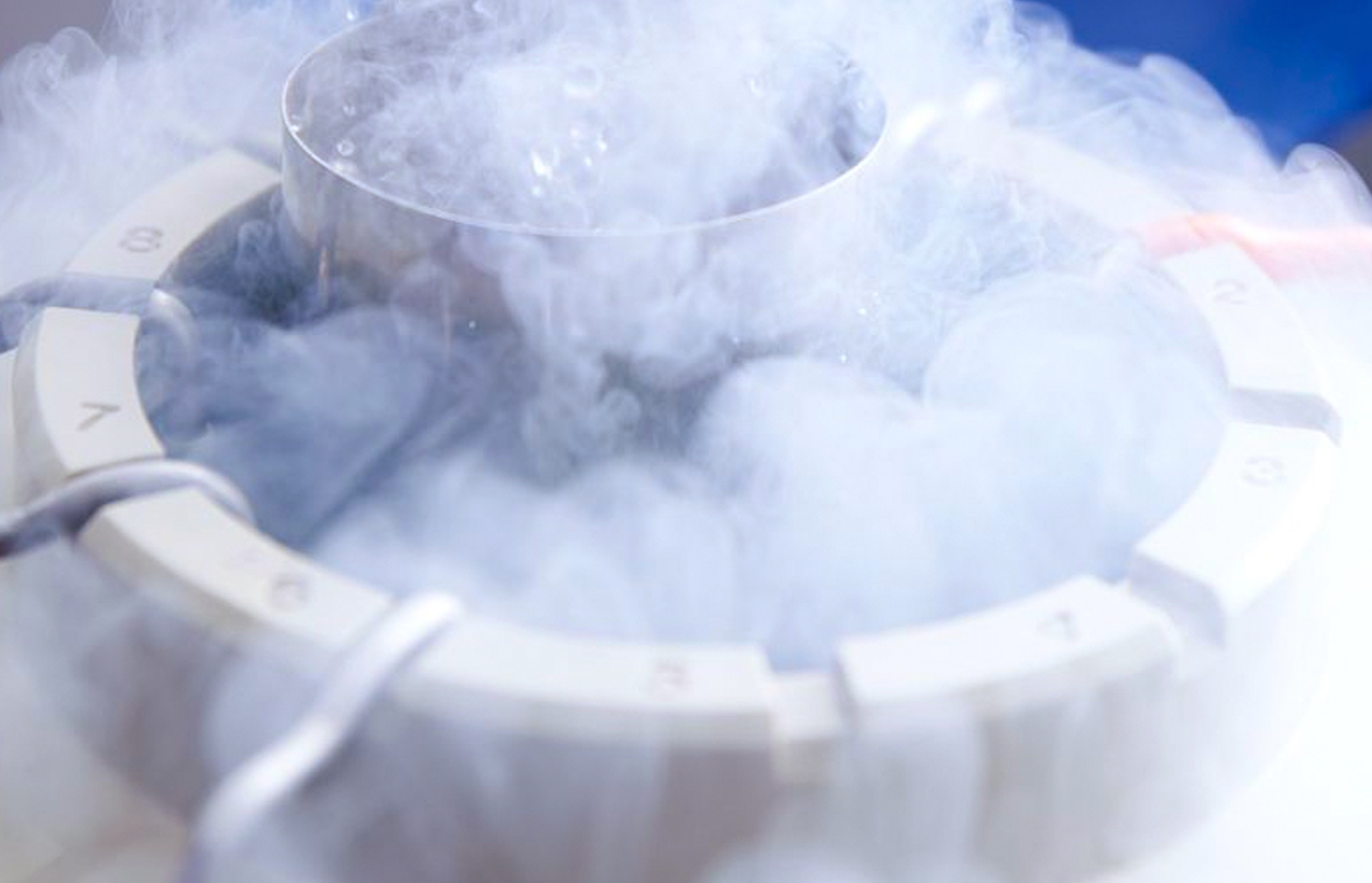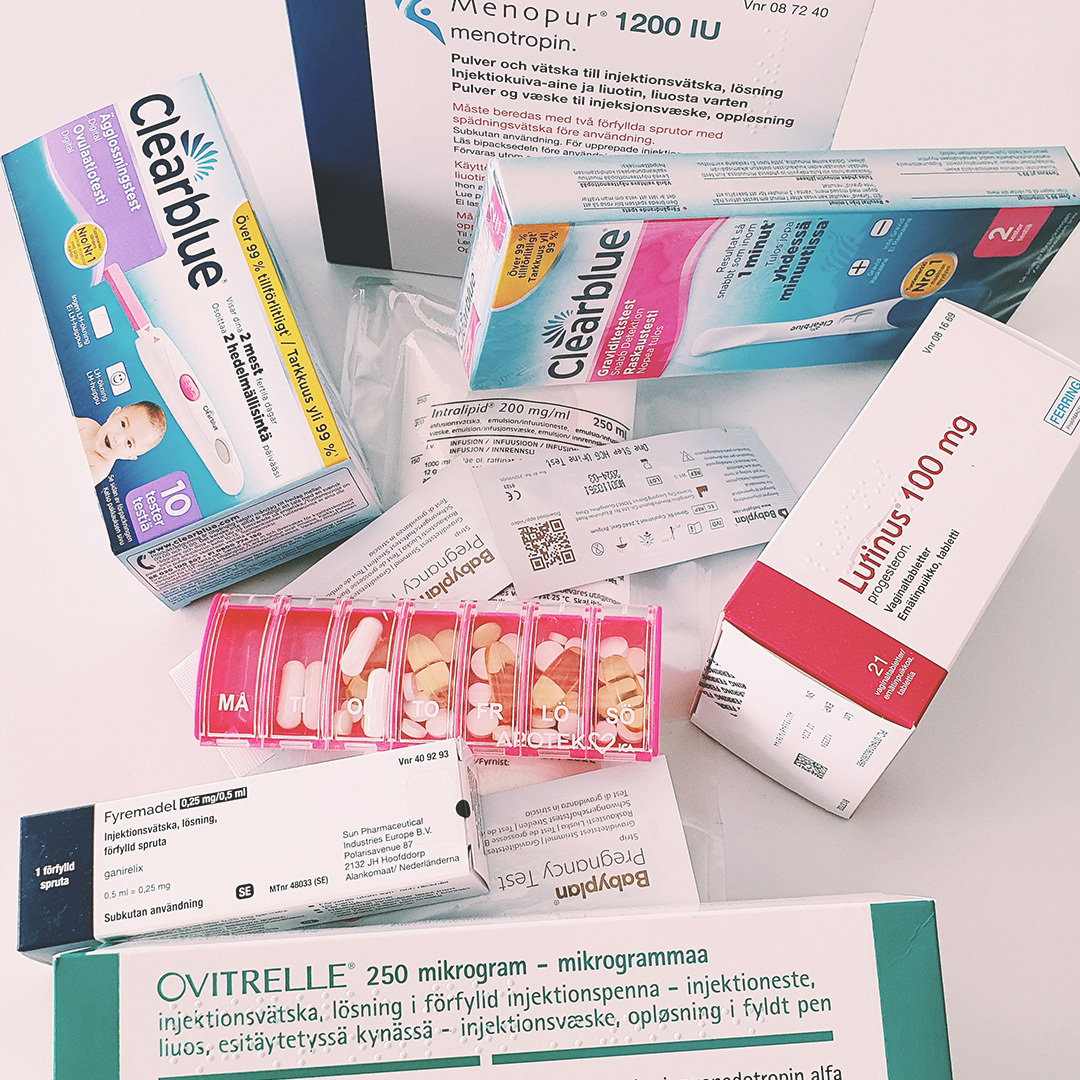Embryo Vitrification

When patients undergo hormonal stimulation during the IVF treatment it starts with the collection of eggs which are then fertilized with sperms in a laboratory. The resulting embryos are cultured in a controlled environment to allow them to develop. If the embryos have reached the desired stage of development, a fresh embryo can be transferred into the uterus and the other embryos that are of good quality can be frozen using vitrification. Embryos are vitrified by the fifth or sixth day after fertilization.
Embryo vitrification is a technique used in assisted reproductive technology to freeze embryos at a very low temperature for future use, typically around -196°C. Vitrification is a fast-freezing technique that involves rapidly cooling the embryos to a very low temperature. This prevents the formation of ice crystals that can damage the embryos during the freezing process, instead the embryo is in a glass-like structure. They are then stored in liquid nitrogen until they are needed. In Sweden, the law allows embryos to be frozen for up to 10 years.
Only high-quality embryos are typically selected for freezing based on their morphology. The reason is because the quality of the embryo is a good indicator of its potential for success after thawing and implantation. Sub-optimal embryos may not survive the process of vitrification and thawing, so they are usually not chosen for freezing.
Embryo vitrification offers several advantages for preserving embryos and increasing the chances of a successful pregnancy. It can reduce the need for multiple cycles of IVF treatment, which can be costly and emotionally draining. In addition, it can be particularly important for couples undergoing treatment for cancer or other medical conditions that may affect their fertility.

Article by
Manal Said
Embryologist at Livio Gärdet
Other Articles

Samantha's Story
I knew from the start that it was hard to conceive a child of our own with my partner. As a child he... Read article

Male factor infertility
The definition of male factor infertility is when the cause of infertility within a couple is becaus... Read article

Endometriosis
The European Society of Human Reproduction and Embryology (ESHRE) has recently released an updated g... Read article
.jpg?alt=media&token=912e3772-6724-4c20-a29e-201478dda308)
Intrauterine Insemination
Intrauterine insemination (IUI), also called artificial insemination (AI), is a type of fertility tr... Read article

Jessica Olers's Story
Sometimes it doesn't turn out as planned. Ever since I was little, I have dreamed of a big family wi... Read article

Jessica’s Story
I have been pregnant three times. Or actually while writing this story, I am pregnant. But I don't f... Read article

Klara’s Story
Our infertility journey started two years ago. The process has not at all been what we expected and ... Read article
.jpg?alt=media&token=fc32a2e6-a127-4170-b5fb-b9338770ed1a)
The effects of Vitamin D on fertility
Vitamin D is a vitamin synthesized in the skin through sun exposure (UVB radiation). Moreover, vitam... Read article

Veronica’s Story
To make babies. Nowadays that phrase has a completely different meaning.In february 2019 we decided ... Read article

Tova’s Story
This is #mybumpystory - an emotional rollercoaster with repeated miscarriages and hopefully soon a b... Read article